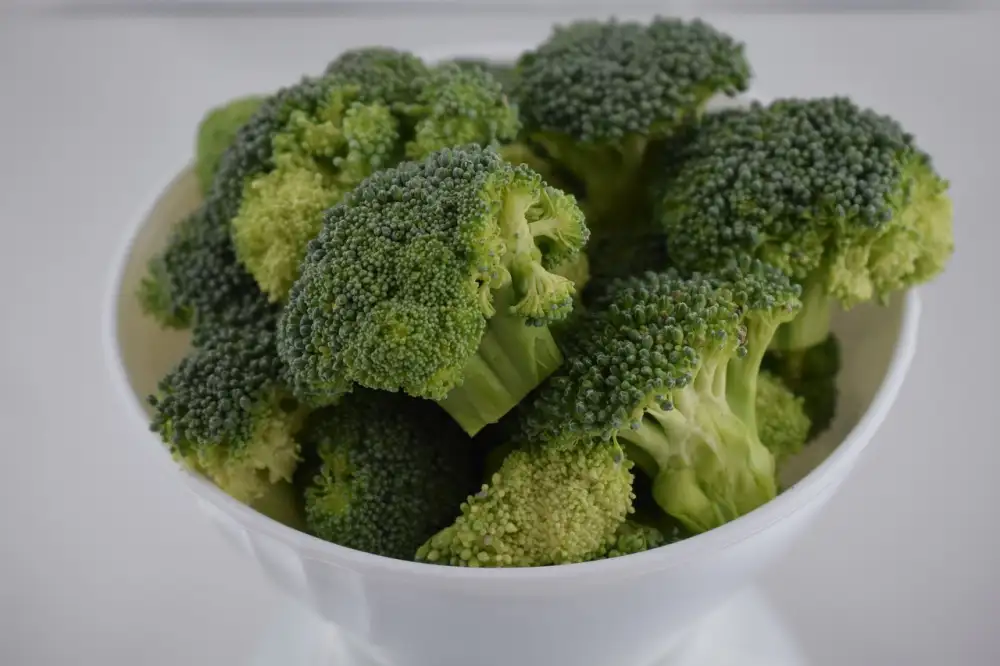Trim Down and Thrive: Discover the Ultimate Guide to Healthy Meals for Weight Loss

- Importance of a Balanced Diet for Weight Loss
- Incorporating Lean Proteins into Your Meals
- Including Fiber-Rich Foods for Satiety and Weight Management
- Choosing Whole Grains for Long-lasting Energy and Weight Control
- Adding Healthy Fats to Promote Weight Loss
- Emphasizing Fruits and Vegetables for Essential Nutrients and Weight Management
- Avoiding Processed Foods and Added Sugars for Effective Weight Loss
- Portion Control and Mindful Eating for Successful Weight Management
When it comes to shedding those extra pounds, a healthy and balanced diet is key. But with so many fad diets and conflicting information out there, it can be overwhelming to know where to start. That's why we're here to guide you through the ultimate plan for healthy meals that will help you trim down and thrive. By incorporating the right nutrients and making smart food choices, you can achieve your weight loss goals while still enjoying delicious and satisfying meals. So let's dive in and discover the secrets behind creating a nourishing meal plan for weight loss!
Importance of a Balanced Diet for Weight Loss
A balanced diet is crucial for successful weight loss. It provides the body with all the essential nutrients it needs while promoting a healthy metabolism. By including a variety of food groups in your meals, you can ensure that you are getting the right balance of carbohydrates, proteins, and fats. This not only helps to fuel your body but also keeps you feeling satisfied and prevents cravings. A balanced diet also supports muscle growth and repair, which is important for maintaining a healthy weight. So, instead of restricting certain foods or following fad diets, focus on creating a well-rounded meal plan that nourishes your body and supports your weight loss goals.
Incorporating Lean Proteins into Your Meals
Incorporating lean proteins into your meals is essential for weight loss. Not only do they help build and repair muscles, but they also keep you feeling full and satisfied. Opt for sources like skinless chicken breast, turkey, fish, tofu, and legumes. These protein-rich foods are low in calories and fat, making them perfect additions to any healthy meal. Be creative with your recipes by grilling, baking, or steaming these lean proteins to maximize their nutritional benefits while keeping the calorie count in check.
Including Fiber-Rich Foods for Satiety and Weight Management
Including fiber-rich foods in your meals is essential for satiety and weight management. Fiber adds bulk to your diet without adding calories, making you feel full and satisfied. It also helps regulate blood sugar levels and promotes healthy digestion. Incorporate foods like fruits, vegetables, whole grains, legumes, and nuts into your meals to increase your fiber intake. These foods not only provide essential nutrients but also keep you feeling fuller for longer, reducing the chances of overeating and aiding in weight loss.
Choosing Whole Grains for Long-lasting Energy and Weight Control
Choosing whole grains is a smart choice for weight loss and long-lasting energy. Unlike refined grains, whole grains are packed with fiber, vitamins, and minerals that keep you feeling fuller for longer. They also help regulate blood sugar levels, preventing spikes and crashes that can lead to overeating. Incorporate whole grain options such as quinoa, brown rice, whole wheat bread, and oats into your meals to promote weight control and sustained energy throughout the day.
Adding Healthy Fats to Promote Weight Loss
Contrary to popular belief, not all fats are bad for you. In fact, incorporating healthy fats into your meals can actually aid in weight loss. Healthy fats, such as those found in avocados, nuts, and olive oil, provide essential nutrients and help keep you feeling satisfied and full.
Including these fats in your diet can help regulate blood sugar levels and reduce cravings for unhealthy snacks. They also play a crucial role in absorbing fat-soluble vitamins like A, D, E, and K.
When adding healthy fats to your meals, it's important to be mindful of portion sizes. While they are beneficial for weight loss when consumed in moderation, they are still high in calories. Aim for a small handful of nuts or a tablespoon of olive oil per meal to reap the benefits without overdoing it.
By incorporating healthy fats into your diet, you can promote weight loss while still enjoying delicious and satisfying meals.
Emphasizing Fruits and Vegetables for Essential Nutrients and Weight Management
Emphasizing fruits and vegetables in your diet is crucial for both essential nutrients and weight management. These plant-based foods are packed with vitamins, minerals, and antioxidants that support overall health. Additionally, they are low in calories and high in fiber, making them ideal for weight loss. By incorporating a variety of colorful fruits and vegetables into your meals, you can ensure that you're getting a wide range of nutrients while keeping your calorie intake in check.
Avoiding Processed Foods and Added Sugars for Effective Weight Loss
When it comes to effective weight loss, avoiding processed foods and added sugars is crucial. Processed foods are often high in calories, unhealthy fats, and artificial additives that can hinder your weight loss efforts. Instead, focus on consuming whole, unprocessed foods that are rich in nutrients and low in added sugars. This includes fresh fruits and vegetables, lean proteins, whole grains, and healthy fats. By eliminating processed foods and added sugars from your diet, you'll not only shed pounds but also improve your overall health and well-being.
Portion Control and Mindful Eating for Successful Weight Management
Portion control and mindful eating are crucial for successful weight management. It's not just about what you eat, but how much you eat. By being aware of portion sizes and listening to your body's hunger and fullness cues, you can avoid overeating and achieve your weight loss goals. Start by using smaller plates and bowls to trick your mind into thinking you're eating more than you actually are. Chew slowly and savor each bite, allowing yourself to fully enjoy the flavors and textures of your food. This will help you feel satisfied with smaller portions. Additionally, try to eat without distractions, such as watching TV or scrolling through your phone, as this can lead to mindless eating. By practicing portion control and mindful eating, you can create a healthy relationship with food and maintain a balanced weight in the long term.
In conclusion, creating a sustainable and nourishing meal plan is essential for successful weight loss. By incorporating lean proteins, fiber-rich foods, whole grains, healthy fats, fruits, and vegetables into your meals, you can ensure that you are getting the necessary nutrients while also promoting weight management. Avoiding processed foods and added sugars is crucial for effective weight loss. Additionally, practicing portion control and mindful eating will help you maintain a healthy lifestyle in the long run. Remember, it's not just about losing weight; it's about finding balance and thriving in your journey towards a healthier you.
Published: 10. 12. 2023
Category: Health



